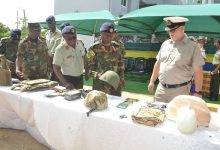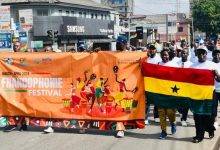Bushfires have reduced in the Western Region as a result of the intensified public safety campaigns by the Ghana National Fire Service (GNFS).
It has been part of measures by the GNFS to promote public safety and food security, check climate change and also reduce greenhouse gas emissions.
Statistics showed that incidents of bushfires in the region had reduced from 60 in 2020 to 50 in 2021, the GNFS command in the region revealed.
Giving the statistical updates, the Western Regional Coordinator, Rural Fire Department, Assistant Divisional Officer (ADO) II Emma Otu-Akwa, told the Ghanaian Times that anti-bushfire campaigns were making gains due to educational programmes held over the past years.
She said, “from the 2020 to 2021 campaigns, we have seen a reduction in bushfires. But, we are still working on the sensitisation of communities about the dangers and devastating effects of wild fires.”
Bushfires, she explained, could be cause by the ignorant use of fires, cigarette smokers, palmwine tappers and others such as lightning.
Again, ADO II Otu-Akwa also attributed the reduction of rural fires to the training of about 350 fire volunteers across the Western Region, and reported that Shama and the Sekondi-Takoradi metropolis would soon receive their share of the programme.
She told the Ghanaian Times that another critical element which had helped to reduce bushfires was the training of farmers to create fire belts around their farms.
Quoting from PNDC Law 229, the law on the control and prevention of bushfires, Act 1990, the fire officer said the act prohibited the starting of bushfires.
ADO II Otu-Akwa said “It is unlawful for a person to start a bushfire for any purpose. For the purposes of this Act, a person starts a bushfire if an action of that person results in the uncontrolled burning of a farm, forest or grassland.
Again, she stated “Where a person is convicted of an offence under subsection (1) the court may in addition to the penalty that it may impose order the offender to make good the value of the property, including the crops or trees damaged or destroyed by the fire caused by that person.”
ADO II Otu-Akwa insisted that bushfires affected the entire population, destroyed lives and property, farms, threatened public safety and also reduced medicinal plants.
She, therefore, called for the collective efforts of stakeholders to sustain the campaigns, assuring that “We will continue to step up anti-bush fire campaigns so that we can improve food security and save our ecology,” she added.
Divisional Officer (DO) III Emmanuel Bonney, also noted that the Western Region would become “drier”, particularly from October through to November and December, with some areas not experiencing rains except the Tarkwa areas.
He said efforts to reduce bushfires were in line with the Sustainable Development Goal (SDG) 13 to check climate change and greenhouse effects.
“We still have some dryness and so we need to be careful about how we set fires in the bush. Controlling fires is about public safety and we’ll continue to intensify our education programmes,” he stressed.
FROM CLEMENT ADZEI BOYE, FIJAI







